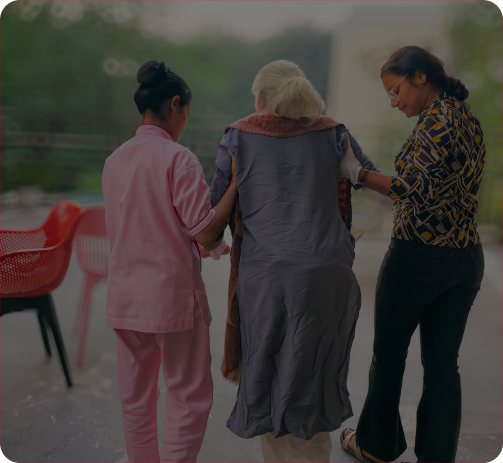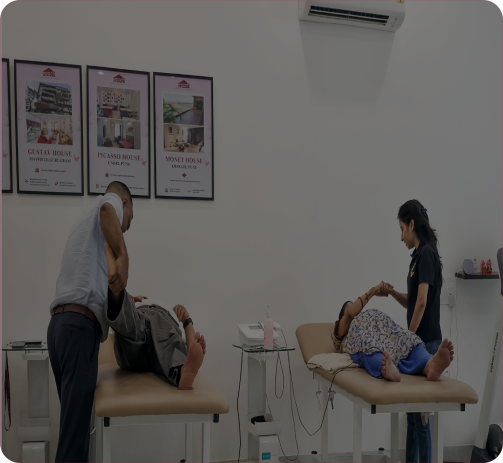India has had a significant increase in older adults over the years. This number is only going to increase exponentially in the future. Successful surgeries in the elderly have become a reality, as compared to a few decades ago. The factors contributing to older adults opting for surgeries include better medical facilities, longer life, and secure finances. The common surgeries include cataract surgery, joint replacement surgeries, hernioplasties, and spine surgeries. As the surgeon would readily agree, the surgery is only the beginning. Post-operative care is very important in achieving the best results after any surgery in older adults.
The common problems which can be of significant concern in post-operative care in the elderly consist of uncontrolled pain, confusion/delirium, dehydration, decreased food intake, and wound care.
Uncontrolled Pain: Pain can be common after surgery, but it should be anticipated in the post-surgical period. It is one of the most distressing symptoms for older adults and can make the recovery period very uncomfortable. Periodic assessment of pain, monitoring its severity, and providing adequate pain management is essential for a great post-surgical outcome in older patients.
Confusion or Delirium: Confusion or postoperative delirium is encountered quite frequently. It should be recognized at the earliest and the cause should be treated. The signs to watch include distraction, disorientation, inability to say certain words, temporary memory loss, hallucinations, and lack of awareness.
Anti-delirium measures should be a part of post-operative care. If there is delirium, then the cause should be treated. Thereafter reorientation of the older adult should to time, place, and person be initiated. Pharmacological interventions are only to be given when agitation is present.
Dehydration: Fluid management helps in the prevention of dehydration. It is critical to prevent dehydration as it can have adverse outcomes. Depending upon the intake oral or intravenous fluids should be administered to maintain hydration.
Food Intake: The provision of proper nutrition plays a role in post-operative recovery of older adults. Diet plans tailored to the individual should be followed. The dentation should also be considered. Post-operative malnutrition must be prevented.
Wound Care: Surgical wound dressing to be done as per directives. Balanced nutrition helps in improving the wound healing.
Prevention- Preventive measures form an important part of post-operative care.
Fall Risk Assessment and Prevention
Multicomponent interventions including exercises under supervision, environmental modifications, assistive technology, and sensors help in decreasing the risk of falls.
Urinary Tract Infection Prevention
If immobilized, older adults are at maximum risk of UTIs. If an older adult patient has an indwelling catheter, daily review and documentation of its indication should be completed and attempts are made to remove the catheter as soon as possible. Indwelling catheters should not be used as a substitute for nursing care for older adult patient who is incontinent.
Pressure Ulcer Prevention and Treatment
Health care teams should assess pressure ulcer risk in all older adult post-operative patients. There are several validated scales stratifying patients at risk by assessing sensory perception, moisture, activity level, mobility, nutrition, and the potential for friction and shear.
Rehabilitation- Rehabilitation forms a strong pillar of post-operative care in older adults. Sessions with physiotherapists for physical and cardiopulmonary rehabilitation regimes improve the functionality of an older adult. Continued mobility is important for preventing DVT
One of the cornerstones of post-operative care in the elderly is structured preoperative and intraoperative care. Multidisciplinary assessment and intervention should be done.
An assessment by a geriatrician forms an essential component of the comprehensive holistic post-operative care of the elderly. The key to successful post-operative care is nursing. Nursing care depending upon the level of independence of the elderly individual should be planned.
Post-operative care for older adults is a structured program with the collaboration of the surgeon, geriatrician, and care team (consisting of nurses, physiotherapists, caretakers) to provide holistic care to improve their quality of life.












